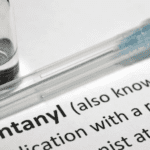The journey of recovery from drug or alcohol addiction has many steps. From seeking professional help to building a strong support system, each person’s path to sobriety is unique. However, one critical aspect should not be overlooked – giving back. The act of giving back can have a profound impact on a person’s recovery journey. Not only does it benefit the community, but it helps the individual maintain long-term sobriety.
The Connection Between Sobriety and Giving Back
Addiction often leaves individuals feeling alone, isolated, and disconnected from their community. Giving back can bridge this gap and help those in recovery feel a sense of belonging and purpose. By volunteering or getting involved in charitable activities, individuals can regain a sense of self-worth and contribute positively to society. This link between sobriety and giving back goes beyond just the act of giving. It is about rebuilding a sense of connection and making a meaningful impact on other people’s lives.
How Does Giving Back Help the Person in Recovery?
Giving back provides those in recovery with a sense of fulfillment and gratitude. It allows them to reflect on their journey and appreciate their progress. By helping others, they gain a new perspective on their struggles and find inspiration in the strength and resilience of those they are helping.
Below are additional ways giving back helps those recovering from a substance use disorder.
- Reinforces Sobriety: Engaging in service activities can distract those in recovery from cravings or triggers that might lead them back to their old habits.
- Builds Self-Esteem: Helping others rebuilds self-confidence and self-esteem. It fosters a positive self-image, making the person feel valuable, worthy, and empowered.
- Provides Purpose: Volunteering or mentoring gives an individual a new sense of purpose, meaning, and direction.
- Develops Empathy: Being in a position to give back helps those in recovery understand and empathize with others who may be struggling.
- Enhances Skills: Engaging in community services can help people in recovery to develop and enhance various social and practical skills.
- Fosters Gratitude: Giving back helps foster a sense of gratitude in individuals for the help they have received during their recovery.
- Promotes Personal Growth: Being of service to others can help promote personal growth and give the person an opportunity to examine and change their attitudes and behaviors.
- Responsibility: When individuals are responsible for the well-being of others, it can motivate them to stay sober.
- Healing: Giving back provides opportunities for individuals to reconcile past negative behaviors and actions, which can be a critical step in their healing process.
- Connection: Volunteering or giving back helps people in recovery connect with others, reducing feelings of isolation which are a common trigger for relapse.
- Perspective: By giving back, individuals in recovery can gain a fresh perspective on their issues. It helps them put their struggles in context.
- Distraction: Participating in positive activities can distract from negative thoughts or cravings. It provides something constructive to do with one’s time.
One study on meaningful volunteer opportunities for people in substance addiction recovery reported many participants felt volunteering was helpful in their recovery process because it helped them think “outside of themselves.”
Seven Ways to Give Back
- Volunteer your time at a local organization that shares your interests or values. Whether it is a community center, homeless shelter, food bank, hospital, school, library, or animal rescue, there are always opportunities to lend a helping hand.
- Share your story. By speaking openly and honestly about your addiction and recovery, you can inspire and educate others who may be going through similar struggles. This can be done through support groups, community events, or online platforms.
- Consider using your skills or talents to benefit others. For example, if you are artistically inclined, you can create and donate artwork to local hospitals or rehabilitation centers. If you are a good listener, you can offer to mentor or support others who are in the early stages of their recovery journey.
- In areas where resources for recovery are limited, start a support group to help others.
- Make a financial contribution to an organization that helps those struggling with addiction. Even small donations can make a big difference.
- Raise money by organizing a charity run, bike race, walk, or other fundraising event. Give the proceeds to local substance abuse prevention and treatment programs.
- Organize community cleanup events. You can set a good example by caring for the environment and promoting cleanliness in the community.
English Mountain Recovery Can Help
If you or a loved one struggles with alcohol or drug addiction, you are not alone. Addiction is a chronic brain disease that can affect anyone. It is treatable, and we can help. At English Mountain Recovery, located in the Smoky Mountains of eastern Tennessee, our skilled professionals will provide you with the care you need to regain control of your life.



